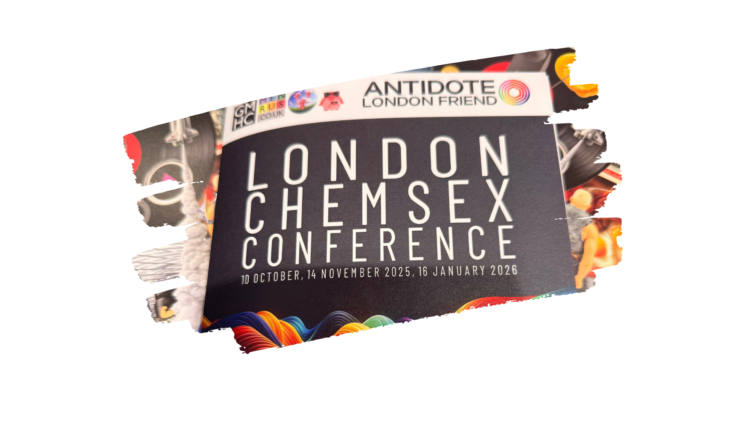News
Reflections on the London Chemsex Conference 2025

Our DRAG project supports LGBTQ+ people in Calderdale and Kirklees affected by substance use, alcohol, and chemsex.
Project Manager Malcolm Struthers reflects on the London Chemsex Conference 2025.
Last week I headed to Camden Town Hall for the London Chemsex Conference 2025 — a packed, thought-provoking day that left me feeling inspired, challenged, and hopeful in equal measure.
I attended alongside colleagues from The Brunswick Centre, CGL, and Calderdale Recovery Steps, who are all working together on the DRAG project across Calderdale and Kirklees. It was a great chance for us to step outside our usual work, take stock of what’s happening nationally, and bring back ideas to strengthen what we’re already building locally.
The conference was deliberately very London-centric, with a strong focus on urban settings and the specific challenges faced by services there. But there were plenty of takeaways for us in Calderdale and Kirklees — ideas we can adapt to fit our own communities, where the dynamics might look a bit different but the underlying issues are often the same.
What struck me most was the sheer diversity of voices in the room — clinicians, peer workers, community organisers, public health leads, and people with lived experience. The sessions didn’t shy away from difficult topics: trauma, consent, service gaps, stigma. There was an honesty that’s sometimes missing from professional spaces.
A theme that came up again and again was how we talk about chemsex — and, more importantly, how we move beyond the ‘moral panic’ that still shapes so much of the public conversation. It’s easy to fall into judgement or sensationalism, but the reality is far more complex. People use for many different reasons — connection, confidence, coping — and if we want to reduce harm, we have to start from a place of understanding, not fear.
The day also offered plenty of practical insight. From trauma-aware approaches to harm reduction, to the importance of peer support and joined-up services, there was a real focus on what works. Many of the sessions were short, open, and full of questions — which kept the energy high and the learning grounded in reality.
Perhaps the most valuable part, though, was the chance to connect with others who share the same goals. Conversations over coffee quickly turned into ideas for collaboration — new ways to link up support across health, recovery, and community spaces.
Walking away, I felt encouraged. Yes, there’s still a long way to go. But events like this remind me that progress happens when people from different sectors come together with honesty and compassion.
We’re already thinking about what comes next — and looking at something exciting for early 2026.
Watch this space!
